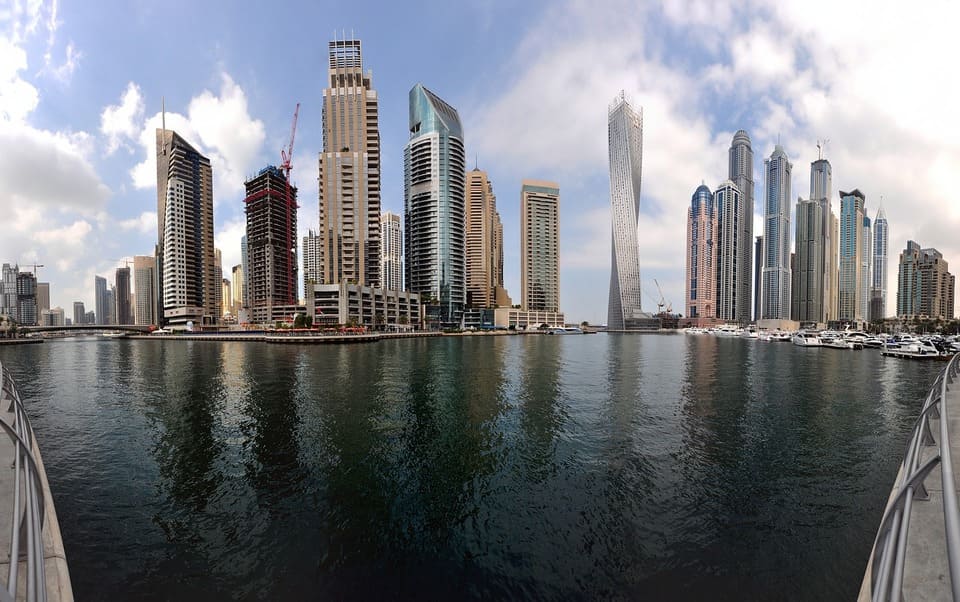
Many Voices, One Nation: Navigating the UAE's Multilingual Landscape
The United Arab Emirates (UAE) is a fascinating country located on the southeastern coast of the Arabian Peninsula. It is renowned for its stunning skyscrapers, luxurious lifestyle, and a rich cultural heritage deeply rooted in its history. One aspect of this cultural diversity lies in the languages spoken in the UAE. With a population made up of people from various corners of the globe, the UAE is a linguistic melting pot. In this article, we will delve into the languages of the UAE, focusing on its official and national language, and exploring the linguistic diversity that characterizes this unique nation.
The official language of the UAE - Arabic
Arabic is the official language of the United Arab Emirates. This is not surprising given the country's location in the heart of the Arab world. Arabic holds a special place in Emirati society, and its use extends far beyond official government functions. Arabic is the language of instruction in schools, and it is also the language used for religious and cultural activities. The prominence of Arabic is reflective of the nation's identity and its commitment to preserving its Arab heritage.
Arabic - the most spoken language in the UAE is known as Emirati Arabic, which is a variety of Gulf Arabic. Emirati Arabic has unique characteristics, including pronunciation, vocabulary, and idiomatic expressions. While it is mutually intelligible with other dialects of Arabic, Emirati Arabic has distinct features that set it apart. Emirati Arabic, like other Gulf dialects, has been influenced by historical contact with Persian, Indian, and East African languages, which adds layers of complexity to its vocabulary and grammar.
The UAE English Language
While Arabic is the official language of the UAE, the English language also plays a significant role in the country. It is widely used as a second language and is often the language of business, education, and international communication. This is primarily due to the UAE's status as a global hub for business and tourism.
It's common to find that most Emiratis are bilingual, and proficient in both Arabic and English. The UAE English language is taught in schools from an early age, and many higher education institutions in the UAE offer programs in English. The prevalence of English speakers in the UAE has made it a convenient destination for expatriates and tourists from around the world.
South Asian Languages of the United Arab Emirates
One of the most fascinating aspects of the UAE's linguistic diversity is the prevalence of South Asian languages. A significant portion of the UAE's population consists of expatriates from countries like India, Pakistan, Bangladesh, and the Philippines. As a result, languages such as Hindi, Urdu, Malayalam, Tagalog, and Bengali have found a home in the UAE.
These languages are primarily spoken among the expatriate workforce and contribute significantly to the country's development. Laborers, domestic workers, and professionals from South Asia communicate in their native tongues, forming a vital part of the UAE's multicultural tapestry.
The causes of the presence of South Asian languages in the UAE can be attributed to economic opportunities, as well as historical and cultural ties. The UAE's booming economy has attracted laborers and skilled professionals from South Asia for decades. Additionally, the historical connections forged through trade and migration have left a lasting linguistic legacy.
Farsi - A Neighbor's Influence on Languages of the UAE
The UAE shares a maritime border with Iran, and as a result, the presence of Farsi speakers, particularly in the northern emirates like Sharjah and Ras Al Khaimah, is quite noticeable. The Farsi language, also known as Persian, is not only spoken by Iranian expatriates but also by Emiratis with familial ties to Iran. This linguistic overlap is a testament to the UAE's historical and geographical proximity to Iran.
The causes of Farsi's presence in the UAE can be traced back to the substantial Iranian expatriate community, trade relations, and cultural exchanges between the two nations. Over the years, the influence of Iranian culture and language has become an integral part of the UAE's cosmopolitan identity.
French and Russian - The Language of Luxury in the UAE
In the glamorous world of luxury and tourism, languages like French and Russian have found their niche. In upscale areas like Dubai, where opulent hotels, resorts, and high-end businesses cater to an international clientele, these languages are often spoken. French and Russian speakers are typically associated with the luxury and hospitality industries.
The presence of French and Russian can be attributed to the influx of wealthy tourists and expatriates from countries where these languages are commonly spoken. These languages enhance the service experience for visitors and cater to the cosmopolitan nature of the UAE's luxury market.
Other World Languages - A Global Melting Pot
The UAE's status as a global crossroads means that it is home to a wide array of other languages. You can hear Spanish, Chinese, German, and many more in different corners of the country. These languages are spoken by expatriate communities hailing from various parts of the world. They contribute to the vibrant cultural mosaic of the UAE.
The causes of these languages' presence in the UAE are as diverse as the languages themselves. Economic opportunities, educational pursuits, and cultural exchanges all play a role in bringing these languages to the forefront. Additionally, the UAE's commitment to diversity and inclusion has made it an attractive destination for people from all over the globe.
Sign Language - A Language of Inclusion in the UAE
In the UAE, inclusivity is a core value, and this extends to the Deaf community. Emirati Sign Language (ESL) is recognized as a minority language and is used to facilitate communication with Deaf individuals. Various educational institutions offer courses in ESL, contributing to greater inclusivity and ensuring that the Deaf community can fully participate in the UAE's vibrant society.
The presence of sign language in the UAE is a testament to the country's commitment to accessibility and equal opportunity for all its residents, regardless of their abilities.
Arabic Significance as the National Language of the UAE
While Arabic is the official language of the UAE, it also holds a special status as the national language. The UAE places great emphasis on the preservation of its Arabic heritage, and this is evident in various aspects of society.
The UAE's commitment to Arabic is most noticeable in the media. Arabic is the language of Emirati newspapers, television channels, and radio stations. This ensures that Arabic continues to play a prominent role in shaping public discourse and culture.
Additionally, the UAE government has been proactive in promoting the use of Arabic in the digital age. Efforts have been made to encourage the development of Arabic content online and to promote the use of Arabic on social media platforms. This is seen as crucial in preserving the language's relevance in an increasingly globalized world.
Arabic Dialectal Variation in the UAE
Arabic is a Semitic language with a rich history that spans centuries and encompasses a vast geographical area. As a result, it has naturally evolved into numerous dialects and variants, each influenced by the region's unique history, culture, and interactions with other languages. The UAE, situated at the crossroads of ancient trade routes and home to a diverse population, is a perfect example of how Arabic dialects can flourish and diversify.
Emirati Arabic - The Heart of the UAE
Central to the tapestry of Arabic dialects in the UAE is "Emirati Arabic." This dialect is the native language of the Emirati people and serves as a linguistic symbol of national identity. Emirati Arabic is distinct from other dialects with its unique pronunciation, vocabulary, and grammatical structures, setting it apart in the Arab world.
One notable feature of Emirati Arabic is its preservation of archaic Arabic words and expressions. These linguistic relics reflect the UAE's commitment to safeguarding its cultural heritage and linguistic roots. While these archaic terms may have fallen out of common usage in Modern Standard Arabic, they continue to thrive in the Emirati dialect, underscoring the enduring connection between language and culture.
Dialectal Variation within the UAE
Within the borders of the UAE, one can encounter a remarkable variety of Arabic dialects, often influenced by historical and geographical factors. These variations add layers of complexity to the linguistic landscape:
- Bedouin Dialects - In the UAE's rural and desert regions, such as the Empty Quarter (Rub al Khali), you can find Bedouin dialects. These dialects are shaped by the nomadic lifestyle of the region's inhabitants and are often more conservative, retaining elements of classical Arabic. Bedouin dialects reflect the enduring traditions of the desert-dwelling Emiratis.
- Urban Variants - In contrast, the urban areas of Dubai and Abu Dhabi showcase a more cosmopolitan and modernized form of Emirati Arabic. These variants have evolved due to urbanization, globalization, and the influx of people from diverse backgrounds, including expatriates, tourists, and international business professionals. Consequently, these dialects may incorporate loanwords and expressions from various languages and dialects.
Preservation and Promotion of the Arabic Language
The UAE has taken significant steps to ensure the preservation and promotion of the Arabic language. One notable initiative is the establishment of Arabic language academies, which work to standardize and develop the Arabic language. These academies are responsible for regulating the use of Arabic in various fields, including education, media, and government.
Furthermore, the UAE government has introduced policies that prioritize the use of Arabic in official documents and correspondence. This includes the requirement for businesses operating in the UAE to use Arabic in their signage and advertising, alongside any other language they choose.
The Challenge of Maintaining Linguistic Diversity
While Arabic remains the official and national language of the UAE, the country's linguistic landscape is incredibly diverse. The coexistence of multiple languages and dialects poses both challenges and opportunities. On the one hand, linguistic diversity reflects the multicultural nature of the UAE and enriches its society. On the other hand, it can create linguistic divisions and challenges in education and communication.
Efforts have been made to address these challenges by promoting multilingualism. Many educational institutions in the UAE offer language courses in various languages, catering to the diverse needs of students. This approach not only acknowledges linguistic diversity but also fosters greater cultural understanding and cooperation.
Languages in the UAE
In conclusion, the United Arab Emirates is a nation where linguistic diversity thrives. While Arabic holds official and national status, English and a multitude of other languages are an integral part of daily life. This linguistic mosaic is a testament to the UAE's openness to the world and its commitment to preserving its rich Arabic heritage.
Arabic remains at the heart of Emirati identity, and the government has taken active measures to ensure its continued relevance. However, the UAE's linguistic diversity is celebrated and embraced, reflecting the country's multicultural society and its position as a global hub for business and tourism. The UAE's approach to languages is a model of coexistence and cooperation in a diverse and interconnected world.







